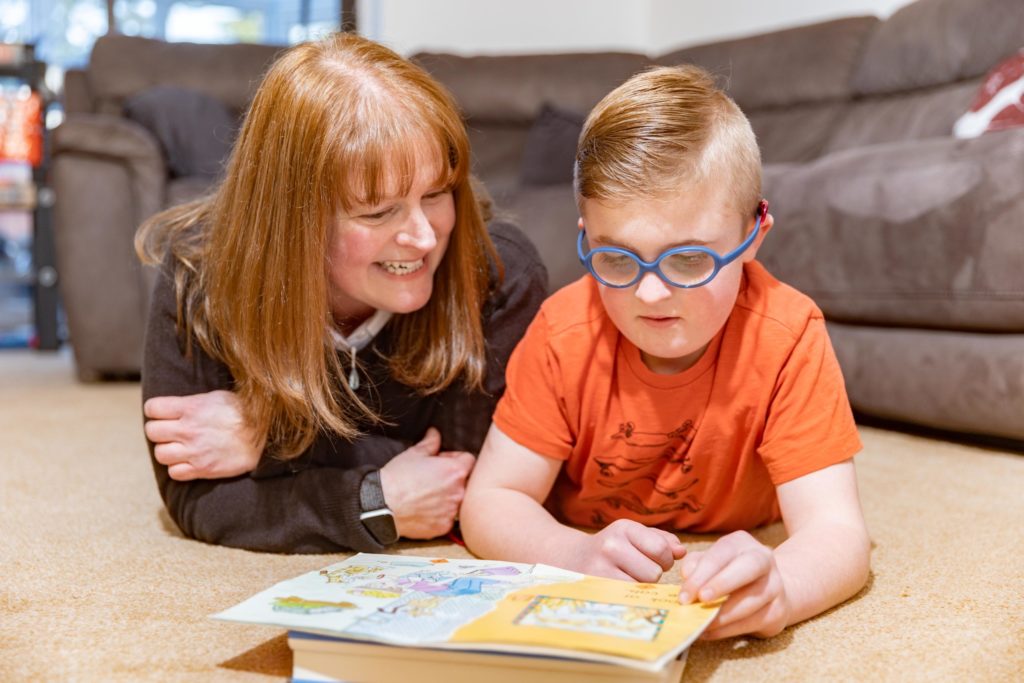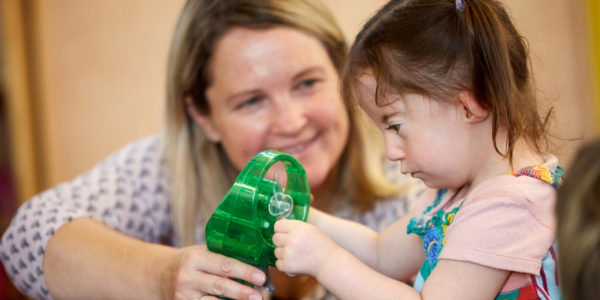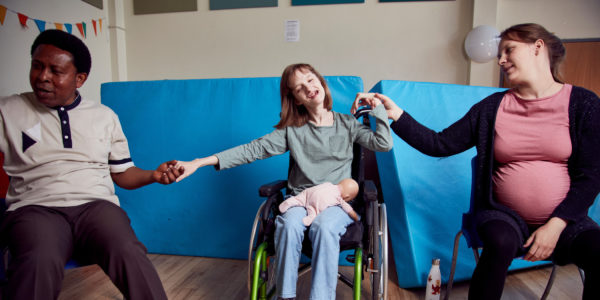Benefits and financial help if you’re a disabled adult
This page gives a short summary of the main benefits you may be entitled to depending on your age, disabilities and situation.
On this page:
- Personal Independence Payments (PIP)
- Employment and Support Allowance (ESA)
- Universal Credit (UC)
- Disabled student’s allowance (DSA)
- Access to Work
- Attendance Allowance
- Paying for your care
We also have separate pages about:
- Disability grants.
- Help with energy and food costs.
- Help with transport and travel costs.
- Specific funding for sport and leisure activities.
- Specific support during the cost of living crisis.
Sense is here for you at every stage of life
We support people with complex disabilities of all ages.
From our free play sessions for children under eight, to our adult residential care services, we’re with disabled people and their families every step of the way.
Get in touch with our team to find out how we could support you.
Personal Independence Payments (PIP)
Personal Independence Payment (PIP) can help with extra living costs if you are 16 or over.
You are eligible if the following three things apply to you:
- You have a long-term physical or mental health condition or disability.
- You have difficulty doing certain everyday tasks or getting around because of your condition.
- The difficulties you have are expected to last for at least 12 months from when they started.
You can get PIP even if you’re working, have savings or are getting most other benefits.
You’ll need to fill in a form and may be asked to go for an assessment to find out more about how your disability affects your life.
There are two parts to PIP:
- Daily living – this part covers help you may need with everyday life, like washing, dressing and preparing food.
- Mobility – this part covers support you may need to get around, from planning a route to using public transport.
There’s a lower and higher rate for each part and you’ll be paid every four weeks.
The government’s Disability Service Centre can give you advice about PIP.
Citizens’ Advice can help you prepare for an assessment.
Employment and Support Allowance (ESA)
This is a benefit you can apply for if your disability affects how much you can work.
You might be able to get Universal Credit (UC) as well as, or instead of, new style ESA, depending on your National Insurance record.
You can apply if you’re employed, self-employed or unemployed.
But you need to have been in work in the past, and to have paid enough national insurance contributions. It means it won’t be suitable when you first leave education.
ESA gives you:
- Help with living costs if you’re unable to work
- Support to get back into work if you’re able to
Find out how to apply for ESA.
Universal Credit (UC)
This helps you with living costs and replaces a lot of older benefits.
As a disabled person, you can claim UC if you’re on a low income or need help with your living costs.
You could be working (including self-employed or part time) or be out of work, you usually need to be 18 or over, and to have less than £16,000 in savings.
You can also claim UC if you’re in full-time education, have limited capability for work and qualify for PIP.
Find out how to apply for Universal Credit.
Disabled students’ allowance (DSA)
This can help to covers the costs that may be involved in supporting you to study at higher education level.
The disability adviser at your college or university should be able to tell you how to apply for it.
Access to Work
Access to Work is a scheme that provides practical support to make work accessible. In turn, this helps people with a disability, health or mental health condition to get into and stay in work.
It can include a grant to help pay for things like:
- BSL interpreters, lip speakers or note-takers
- Adaptations to a vehicle you use to get to work
- Special computer equipment
- A support worker or job coach to help you in your workplace
A grant through Access to Work doesn’t affect any other benefits you get.
Attendance Allowance
Attendance Allowance helps with extra costs if you’ve reached state pension age and have a disability that means you need someone to help with your care needs.
It’s paid at two different rates. How much you get depends on the level of care you need because of your disability.
It doesn’t cover mobility needs.
Other benefits you get can increase if you get Attendance Allowance.
You do not have to have someone caring for you to claim.
The government’s Disability Service Centre can give you advice about Attendance Allowance.
Are you a carer, or do you have a disabled child under 16?
Make sure you’re getting the support you’re entitled to.
Paying for your care
Find out more about who pays for social care services.
Other sources of advice
You can find out more about the financial help available if you’re disabled from Gov.uk.
The Citizens Advice website has lots of information on benefits and how to apply for them.
Turn2Us help people in financial hardship to get access to benefits and grants. They have a benefits calculator and a grant search to help you find organisations that provide goods or grants when you need it.
Stay in touch

Get updates about our vital work, including volunteering, making a donation or supporting Sense campaigns.
This content was last reviewed in June 2023. We’ll review it again next year.




